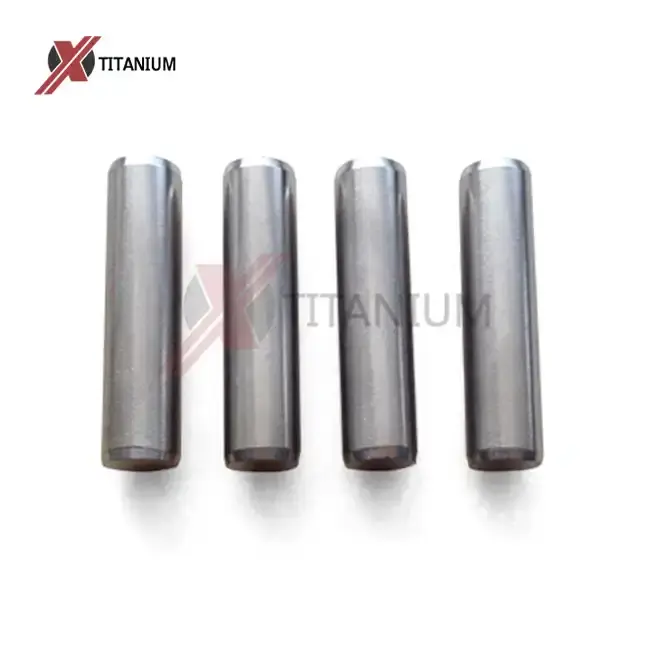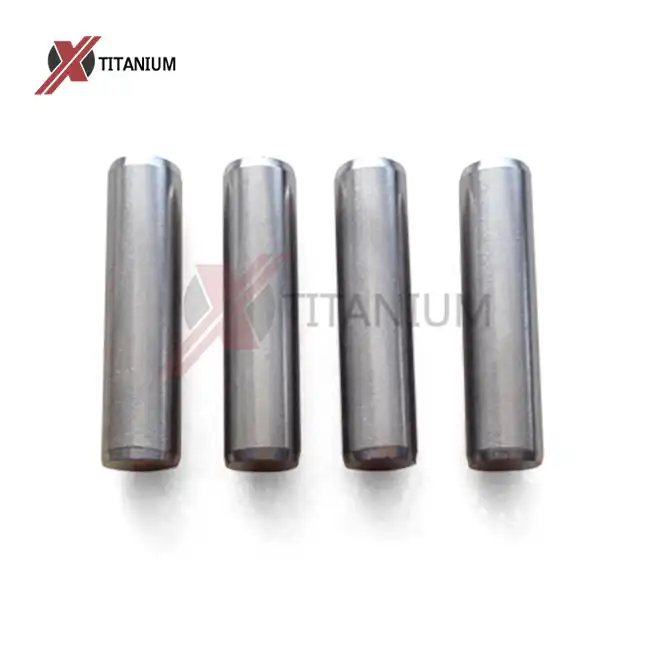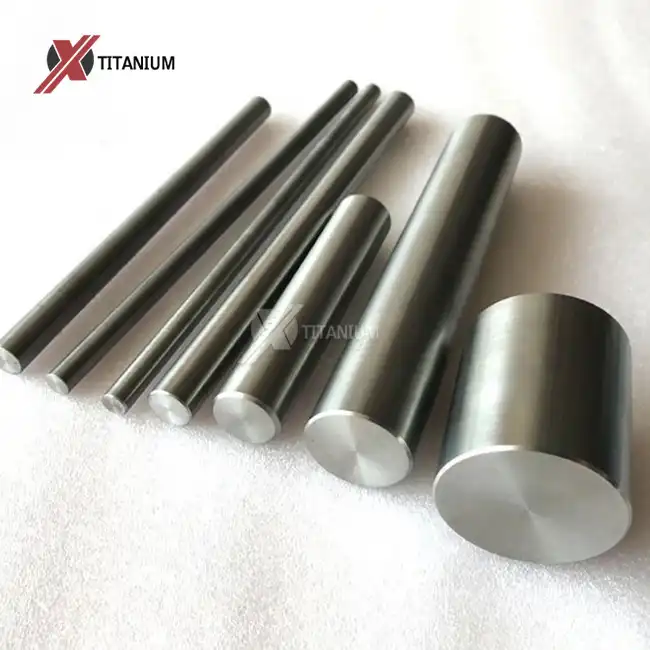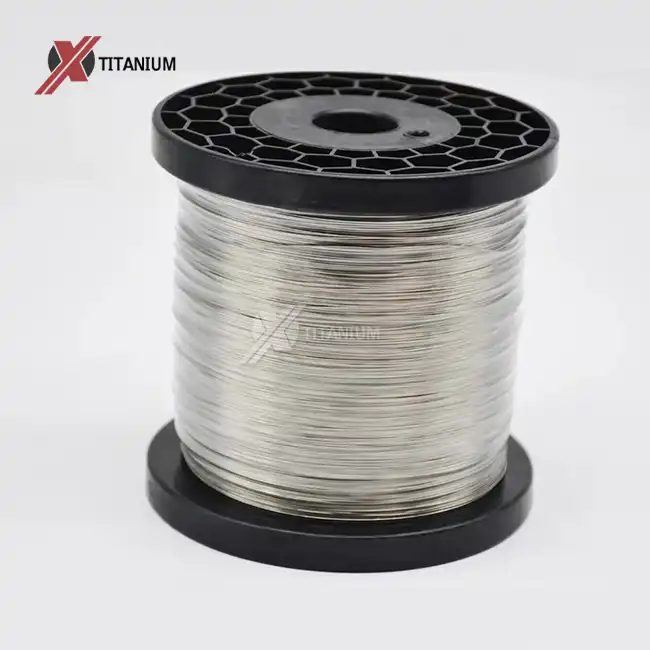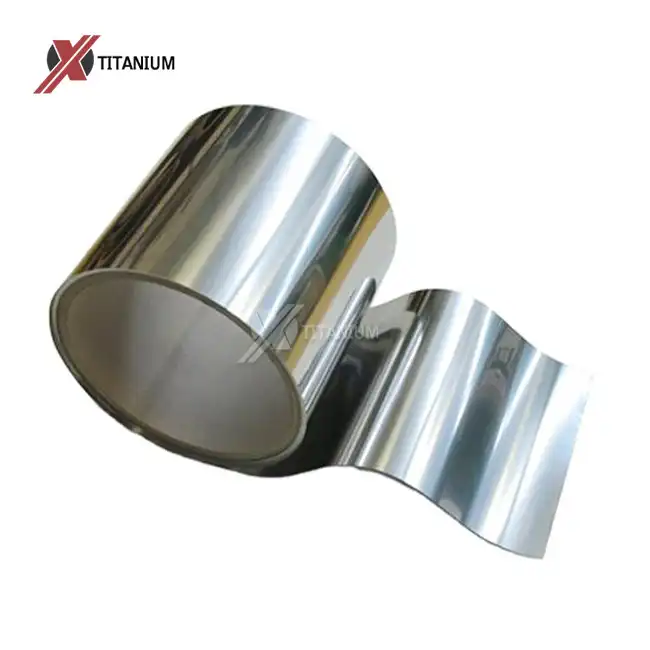The Unique Properties of Titanium Dowel Pins
Exceptional Strength-to-Weight Ratio
Titanium dowel pins boast an impressive strength-to-weight ratio, making them a superior choice for applications where weight is a critical factor. This property is particularly beneficial in aerospace and automotive industries, where every gram counts. Despite their lightweight nature, these pins offer tensile strengths comparable to steel, often exceeding 900 MPa. This remarkable combination allows engineers to design more efficient systems without compromising on structural integrity.
Corrosion Resistance in Harsh Environments
One of the most compelling attributes of titanium dowel pins is their exceptional resistance to corrosion. Unlike standard steel or aluminum pins, titanium components can withstand exposure to saltwater, acids, and various chemicals without degradation. This resistance stems from titanium's ability to form a stable, protective oxide layer on its surface. In marine applications, for instance, titanium dowel pins maintain their structural integrity and appearance even after prolonged exposure to seawater, outperforming traditional materials by a significant margin.
Thermal Stability Across Extreme Temperatures
Titanium dowel pins exhibit remarkable thermal stability, maintaining their mechanical properties across a wide range of temperatures. This characteristic is crucial in applications that experience significant temperature fluctuations or require operation in extreme heat or cold. From cryogenic environments to high-temperature industrial processes, titanium pins remain dimensionally stable and retain their strength. This thermal resilience makes them ideal for use in jet engines, chemical processing equipment, and deep-sea exploration tools.
Manufacturing Processes for High-Performance Titanium Dowel Pins
Precision CNC Machining Techniques
The production of high-quality titanium dowel pins relies heavily on advanced CNC machining techniques. These computer-controlled processes ensure exceptional precision and consistency, critical for components that often serve as alignment guides or load-bearing elements. Modern CNC machines can achieve tolerances as tight as ±0.01 mm, guaranteeing a perfect fit in complex assemblies. The machining process also allows for customization of pin dimensions, from diameters as small as 1 mm to lengths up to 200 mm, catering to a wide range of application requirements.
Surface Treatment and Finishing Options
To enhance the already impressive properties of titanium dowel pins, various surface treatments and finishing options are available. Anodizing, for example, can increase the natural oxide layer, further improving corrosion resistance and providing aesthetic color options ranging from gold to blue, green, purple, or black. Nitriding processes can significantly increase surface hardness, enhancing wear resistance in high-friction applications. For medical or food-grade applications, electropolishing creates an ultra-smooth, hygienic surface that resists bacterial adhesion.
Quality Control and Material Certification
Rigorous quality control measures are essential in the production of high-strength titanium dowel pins. Each batch undergoes extensive testing to ensure compliance with international standards such as ASTM and ISO. Material composition is verified through spectrographic analysis, while mechanical properties are confirmed through tensile and hardness testing. For critical applications, non-destructive testing methods like ultrasonic inspection may be employed to detect any internal flaws. Comprehensive material certifications provide traceability and assurance of the pins' quality and performance characteristics.
Applications and Advantages in Extreme Conditions
Aerospace and Aviation
In the aerospace industry, titanium dowel pins play a crucial role in aircraft construction and engine assembly. Their high strength-to-weight ratio contributes to fuel efficiency without compromising structural integrity. These pins are used in critical areas such as wing attachments, engine mounts, and landing gear assemblies. The ability to withstand extreme temperature variations, from the cold of high altitudes to the heat generated by engines, makes titanium dowel pins indispensable in aviation applications.
Marine and Offshore Engineering
The marine environment presents unique challenges, with constant exposure to saltwater and varying pressures. Titanium dowel pins excel in these conditions, resisting corrosion where traditional materials would quickly degrade. They are utilized in underwater robotics, offshore drilling equipment, and ship propulsion systems. The pins' ability to maintain their properties under high pressures makes them ideal for deep-sea applications, where reliability is paramount.
Chemical and Pharmaceutical Processing
In chemical processing plants and pharmaceutical manufacturing facilities, titanium dowel pins offer unmatched chemical resistance. They can withstand exposure to aggressive acids, bases, and organic solvents without deterioration. This property ensures the integrity of critical alignments in reactor vessels, heat exchangers, and precision machinery used in drug production. The use of titanium components also reduces the risk of contamination, a crucial factor in maintaining product purity and safety standards.
Medical and Biomedical Implants
The biocompatibility of titanium makes it an excellent choice for medical implants and surgical instruments. Titanium dowel pins are used in orthopedic and dental implants, providing a strong, lightweight solution that integrates well with human tissue. The material's resistance to bodily fluids and its ability to osseointegrate contribute to the long-term success of these medical applications. Additionally, the non-magnetic nature of titanium allows patients with implants to safely undergo MRI scans.
Conclusion
High-strength titanium dowel pins represent a cutting-edge solution for applications demanding exceptional performance under extreme conditions. Their unique combination of strength, corrosion resistance, and thermal stability makes them invaluable across a wide range of industries. As engineering challenges continue to evolve, the versatility and reliability of titanium dowel pins ensure their continued relevance in pushing the boundaries of what's possible in harsh and demanding environments.
For more information about our high-quality titanium dowel pins and other titanium products, please contact us at info@cltifastener.com or djy6580@aliyun.com. Our team of experts is ready to assist you in finding the perfect titanium solution for your specific needs.
